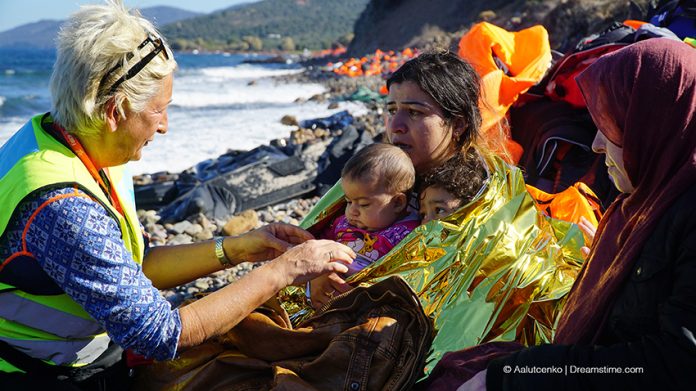Refugees’ and migrants’ mental health care needs must be addressed, and a coordinated response is essential, stresses Ophélie Martin at Mental Health Europe
More than a million migrants and refugees crossed into Europe in 2015 and 2016, with more expected to arrive in 2017. Many of them have endured physical and emotional trauma, including torture, loss of loved ones, violence and exploitation. The psychological reactions and distress they may experience in response to the challenges they face are completely normal. Many can be supported by social interventions, whereas some may need more extensive mental health care and support.
Upon their arrival in Europe, migrants and refugees may also encounter distressing situations such as detention in camps, deportation, denial of basic services and protection, poverty, separation from family members and social exclusion. Many organisations on the ground are warning authorities of the heightened risk of migrants and refugees experiencing mental distress which could lead to mental health problems in the absence of appropriate support.
A question of rights and cohesion
Providing access to mental health and psychosocial support for migrants and refugees is not only a human rights obligation but it is imperative to social cohesion, as well as beneficial for European economies in the long-term. States must fulfil their obligations under existing international, European human rights and refugee frameworks, such as the International Covenant on Economic, Social and Cultural Rights (ICESCR), which includes an explicit obligation to ensure the right to the highest attainable standard of mental health to all, without discrimination (Art. 12). The right to access good quality health care includes the provision of access to mental health care and support, regardless of migration status which, simply put, means that all migrants and refugees have the right to access such care.
Providing mental health support is key to helping migrants and refugees settle in Europe. Denying access to mental health care today will only lead to future challenges in European countries tomorrow. In terms of cost, the World Health Organization has also acknowledged that prevention and early intervention in relation to mental health is cheaper in the long run than simply providing access to emergency or acute care for migrants and refugees.
Facing the reality on the ground
The increased migration flows of the past two years have led to the development of acute humanitarian situations in certain places in Europe (Greece, Southern Italy, and Calais). Personnel on the ground are working under very difficult circumstances and should be given the means to support migrants and refugees appropriately. In its most recent position paper, Mental Health Europe encourages the use of guidelines such as the IASC Guidelines for Mental Health and Psychosocial Support (2007) and the Multi-agency guidance on Mental Health and Psychosocial Support which can be helpful in these settings.
MHE also calls for states to ensure that all personnel who come into contact with migrants and refugees, such as police, immigration officials, medical professionals and social workers are given basic mental health and cultural training which helps them to better identify and support people experiencing mental distress. Many migrants and refugees may never have even heard of mental health and wellbeing before, or they might understand it differently or associate it with stigma. They may express fear or other emotions in ways that are unfamiliar to us. If mental health support is to be effective it needs to be culturally sensitive, person-centred and accessible. The question of language is also crucial for the provision of mental health port since without the ability to communicate or to understand information from health care professionals, migrants and refugees are more likely to receive poorer care.
Towards a stronger European coordinated response
The EU must ensure there is a coordinated European response that addresses the humanitarian and protection needs of migrants and refugees, in line with existing international recommendations and obligations. Regrettably, the current political crisis has been caused by the failure of many Member States to deal with the situation in a unified way. Instead of acting together to meet this challenge by developing a common plan, Member States have entered endless discussions around strategies which are unlikely to work in the longer term and which focus only on stemming the flow of migration.
Initiatives such as the EU Blue Card proposition, the International Organisation for Migration’s “Equihealth” (supported by the Commission), as well as the EU Commission’s call for projects on the health of migrants and refugees are already positive developments that will hopefully help support migrants and refugees. However, more could be done at EU level, such as giving incentives to Member States for the strengthening of national and local capacity which ensures access to long-term health and social services and support for the social inclusion of refugees. Read more about MHE’s recommendations to the EU, as well as existing European initiatives and international frameworks.
Ophélie Martin
Communications Officer
Please note: this is a commercial profile











